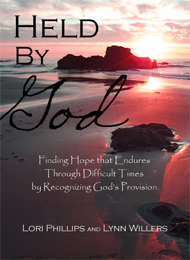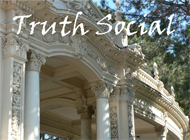 The news seems to be making headlines faster than we can read them. California lost two sheriff’s deputies this week to a worthless thug who should have been in jail. Canada lost two military officers to two jihadists, and a third jihadist attacked two New York City police officers with a hatchet, critically wounding one of them. Ebola is still killing people in West Africa, and is still managing to make its way into the US, despite all the assurances from our government that they’ve got everything under control. And that was all just this week!
The news seems to be making headlines faster than we can read them. California lost two sheriff’s deputies this week to a worthless thug who should have been in jail. Canada lost two military officers to two jihadists, and a third jihadist attacked two New York City police officers with a hatchet, critically wounding one of them. Ebola is still killing people in West Africa, and is still managing to make its way into the US, despite all the assurances from our government that they’ve got everything under control. And that was all just this week!
I follow Twitter because I like to know what’s going on, and everything happening in the world shows up there first. Now this can be both a blessing and a curse. Yes, you can get up-to-the-minute news, but then it can also be quite an overwhelming deluge of information. And because most of the news is not of the warm-and-fuzzy-puppy-dog variety, one can easily slip into crisis overload, and also be left with images that unfortunately cannot be un-seen.
Last week, Fox News published a poll reporting that 58% of Americans think the world is going-to-hell-in-a-hand-basket. People in general are not optimistic about the future. With increasing incidents of violence and disease, economic uncertainty, and freedoms previously taken for granted now under assault, it’s easy to get distracted by the events going on around us. What starts as concern can become anxiety, and then when stewed over, can lead to fear.
As believers we are guaranteed a sense of peace despite our surroundings. The Holy Spirit dwells within us and provides that comfort to us. But being flawed humans still trapped in our un-glorified mortal bodies, we struggle holding on to that comfort. I know I do. While God gently whispers to me words of promise, the enemy yells, “Hey look over here, another severed head!” This bothers me, and causes kind of an “emotionally schizophrenic” response (for lack of a better term) in my head. Part of me tells myself, “God is sovereign, he’s in control, everything is going according to his plan, and he will see me through whatever hardship lies ahead in my future.” But the other part of me feels like I’m running around in circles, flinging my arms about like Henny Penny and shrieking, “The sky is falling, the sky is falling!”
Things I always considered as happening to “those poor people over there” are now happening to us over here. There is a very real possibility that Christians in the US will experience increased persecution, and even death. As ISIS want-to-bes here in the US gain confidence, their sites will likely expand beyond police and military targets.
So how do we “keep our heads” so to speak when chaos surrounds us? If God promises us peace through the indwelling of the Holy Spirit, how do we access that comfort when we feel afraid? In God’s Word, there are quite a few examples of people who just like us, lived in perilous times and sought God’s comfort when they were afraid. Gideon threshed wheat in the wine press to avoid confrontation with the Midianites. Elijah ran and hid under a tree after Queen Jezebel threatened his life. King David faced many threats and the Psalms are filled with his prayers asking for deliverance from his enemies.
When these Old Testament believers were distracted by the mess around them, they refocused their attention on the One who saves.
Look on me and answer, LORD my God. Give light to my eyes, or I will sleep in death, and my enemy will say, “I have overcome him,” and my foes will rejoice when I fall. But I trust in your unfailing love; my heart rejoices in your salvation. I will sing the LORD’s praise, for he has been good to me. Psalm 13:3-6, NIV
When I was a teen, one particular passage became a word-picture for me, boldly illustrating God’s power to rescue in the middle of total chaos.
You will not fear the terror of night, nor the arrow that flies by day, nor the pestilence that stalks in the darkness, nor the plague that destroys at midday. A thousand may fall at your side, ten thousand at your right hand, but it will not come near you. Psalm 91:5-7, NIV
In my mind’s eye, I can see the writer standing on a precipice, watching the enemy fall around him by the thousands while he is miraculously preserved. He is not afraid, he is confident, because his focus is not on the enemy but on God.
King David pens a similar passage of assurance, even as he flees from his own son who is trying to kill him.
But you, LORD, are a shield around me, my glory, the One who lifts my head high. I call out to the LORD, and he answers me from his holy mountain. I lie down and sleep; I wake again, because the LORD sustains me. I will not fear though tens of thousands assail me on every side. Psalm 3:3-6, NIV
In the book of Hebrews chapter 11, the writer gives an account of many Old Testament saints, praising them for keeping their focus on the promised One to come, which was the Messiah. In chapter 12, New Testament believers are also encouraged to keep the same focus, and that in doing so, they’ll be strengthened during difficult times.
Therefore, since we are surrounded by such a great cloud of witnesses, let us throw off everything that hinders and the sin that so easily entangles. And let us run with perseverance the race marked out for us, fixing our eyes on Jesus, the pioneer and perfecter of faith. For the joy set before him he endured the cross, scorning its shame, and sat down at the right hand of the throne of God. Consider him who endured such opposition from sinners, so that you will not grow weary and lose heart. Hebrews 12:1-3, NIV
The story of Peter provides a very practical demonstration of focus verses distraction. Jesus had just finished feeding the 5000 by multiplying the bread and fish from a boy’s lunch. As he dismissed the crowd, he sent the disciples on ahead by boat across the Sea of Galilee, promising to meet up with them later. The sun goes down and the disciples are out in the boat in the middle of the lake. Early the following morning, before sunrise, Jesus walks out to meet them. When they see a figure of a man walking on the water toward them, they freak out.
But Jesus immediately said to them: “Take courage! It is I. Don’t be afraid.” “Lord, if it’s you,” Peter replied, “tell me to come to you on the water.” “Come,” he said. Then Peter got down out of the boat, walked on the water and came toward Jesus. But when he saw the wind, he was afraid and, beginning to sink, cried out, “Lord, save me!” Immediately Jesus reached out his hand and caught him. “You of little faith,” he said, “why did you doubt?” And when they climbed into the boat, the wind died down. Then those who were in the boat worshiped him, saying, “Truly you are the Son of God.” Matthew 14:27-33, NIV
When Peter kept his eyes fixed on Christ, he had the ability to defy the laws of nature. But when he began to focus on the threat of drowning, he started to sink. Peter’s fear distracted him and then doubt caused his faith to falter. He lost confidence in what Jesus had given him the ability to do.
In a very different example, the story of Stephen shows how God provides comfort and peace during times of severe hardship. The book of Acts records a long speech made by Stephen to the Sanhedrin, a body of religious leaders in his day. He recounts history through Abraham, describing God’s faithfulness despite the people’s disobedience, and then their rejection of his promised Messiah. The people are enraged by Stephen’s words and drag him out of the city to stone him.
When the members of the Sanhedrin heard this, they were furious and gnashed their teeth at him. But Stephen, full of the Holy Spirit, looked up to heaven and saw the glory of God, and Jesus standing at the right hand of God. “Look,” he said, “I see heaven open and the Son of Man standing at the right hand of God.” At this they covered their ears and, yelling at the top of their voices, they all rushed at him, dragged him out of the city and began to stone him. Meanwhile, the witnesses laid their coats at the feet of a young man named Saul. While they were stoning him, Stephen prayed, “Lord Jesus, receive my spirit.” Then he fell on his knees and cried out, “Lord, do not hold this sin against them.” When he had said this, he fell asleep. Acts 7:54-60, NIV
God’s peace gave Stephen a confidence and a boldness to share the truth, no matter the consequences. To think that he had the presence of mind to actually pray for the people who were throwing rocks at him! I’m thinking I might have been a bit distracted by the pain at that point, but not Stephen. These people are screaming at him but he is completely focused on Christ. For that moment, the veil between our world and the dimension in which God dwells is pulled back and we get a glimpse inside.
One point I find particularly interesting, is that Jesus is standing. He’s not “seated at the right hand of the Father” which is where his throne is described to be, but standing. This is speculation on my part, but I don’t think that Jesus just sends one of his angels out to fetch us when it’s time to go home. I think he himself actively receives us. Stephen was in the process of dying a martyr and I think Jesus was standing out of admiration and in anticipation of welcoming home a beloved child. Again, just speculation on my part, but it would seem consistent with his character.
We learn from Stephen and Peter that the extent of our focus on Christ affects how we view our surroundings and our circumstances. So how do we stay focused and avoid being distracted by fear?
Well first off, focus does not come from a casual relationship with God, but from a serious pursuit of him. A Christian who only talks to God on Sunday will likely be overrun by the enemy when attacked. Prayer is a powerful weapon against the enemy, and we should use it often. We also need to be rooted in God’s Word. The Bible is akin to life-sustaining bread that should be consumed daily. It is not cake to be enjoyed just on special occasions.
We should take note that while God could have easily delivered Stephen from death, he did not. Likewise in our own lives, God may protect us from physical harm, or he may not. As Christ-followers we must remember that our lives are not our own, and that God may allow them to be extinguished for his glory. I know that sounds nutty to non-believers but that is exactly what he did in Stephen’s case. Saul was present during the stoning of Stephen and even held the coats of the participants. This is the same Saul who met Jesus on the road to Damascus, and was temporarily blinded before his miraculous conversion. This is the same Saul who then became the apostle Paul, eventually writing a significant portion of the New Testament. There’s no doubt that his presence during Stephen’s murder was orchestrated by God to accomplish Saul’s conversion and ministry. As Christ-followers, we need to be prepared to face serious persecution as our brothers and sisters across the globe already have. The issues of fear and focus are not about assured deliverance from death, but about being comforted and confident in all situations whether we live or not.
When I think about how Stephen faced his death, I am reminded of an old hymn. The chorus seems to describe his countenance perfectly, and I find it a great source of encouragement.
Turn your eyes upon Jesus,
Look full in His wonderful face,
And the things of earth will grow strangely dim,
In the light of His glory and grace.
On the journey toward Home,











